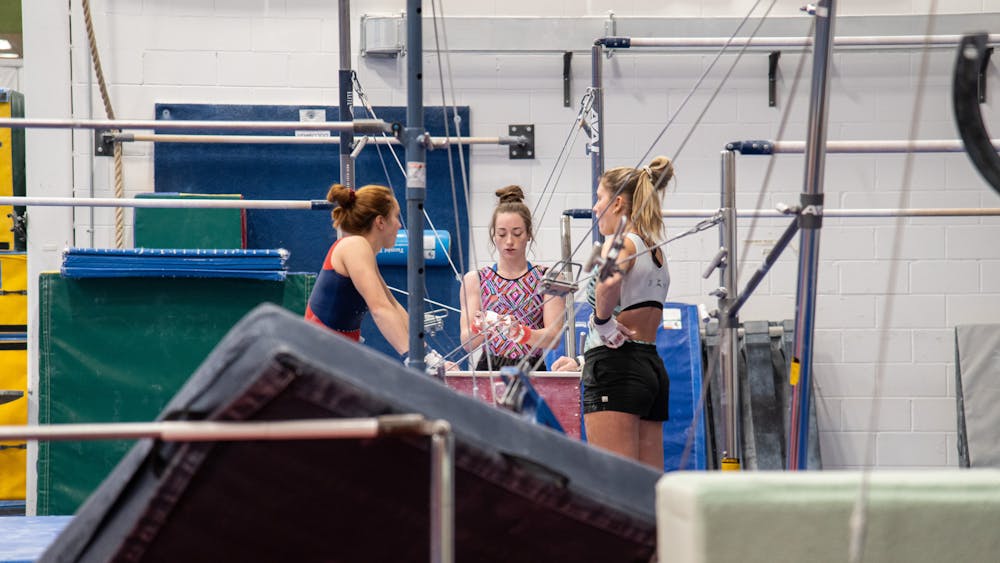CM Life alumnus David Harris discusses covering Orlando shooting
When he first arrived at the crime scene, Orlando Sentinel reporter David Harris knew at least 20 people were dead.
A few hours later at a press conference, the Central Michigan University alumnus learned the death toll had doubled.
On June 12, Pulse, a gay nightclub in Orlando, was the scene of the largest mass-shooting in United States history. The gunman, Omar Mateen, 29, of Fort Pierce, Florida, carried an assault rifle and pistol into the packed dance club at about 2 a.m. and started shooting, killing 49 people and wounding 53 others. Mateen was killed during a standoff with police.
Harris, a former editor in chief of Central Michigan Life, covered the shooting as the Sentinel's cops and breaking news reporter, delivering accurate information as quickly as possible to the community.
David Harris reports:
"My perspective on it was to get the important information to the public. When a shooting happens, you have to be very careful when you're sending it out there," Harris said. "I wanted to send the information as quickly and accurately as possible."
When he got to the scene, Harris said he initially noticed a large police presence and a large number of citizens attempting to observe the situation.
Obituaries of victims were written within a couple days. It was an effort to overcome the trauma of the attack and help the community mourn, Harris said.
"Hearing of so many deaths was shocking. I was scared," he said. "To me, it's just (an opportunity) to appreciate; to appreciate the people you love and you feel lucky you can still say that."
As a journalist, Harris said he knew not to become emotionally attached to the subjects he was writing about. His role was to tell stories beyond the victims' names or photos, but about the lives they lived and hoped to live.
"It's to build their legacy beyond just being a victim. That gets me to work in the morning," he said.
Despite his efforts, Harris said he couldn't help being affected by the stories, hugging his six-month-old son a little tighter that night and days that followed.
The same week as the attack at Pulse nightclub, on June 14 a 2-year-old Nebraska boy was taken by an alligator into a lagoon near a Walt Disney World hotel in Orlando. According to CNN, he drowned after being snatched by the creature.
"Typically (that) would have been the biggest story of the year, but there was this other story already happening this week. That was just crazy," Harris said.
Staying personally separated while covering a tragedy is part of his laid-back personality and an important part of his job.
What a community needs from a journalist isn't a personal connection, but a steady work of accurate information, Harris said, "because (the public) deserves to be informed."
Before moving to Orlando, Harris was the cops and courts reporter at The Flint Journal. During his last week working at the paper, he covered the manhunt for convicted murderer Elias Abuelazam, who was accused of 14 Flint-area stabbings, five of which were fatal. The spree of attacks spread to Ohio and Virginia, captivating the nation's attention.
That was his introduction to covering crime.
"I enjoyed covering that and working in Flint. It helped me with covering the (Orlando) shooting because it helped me experience those feelings that I had at Pulse," Harris said.
During his four years working with Harris as The Flint Journal's Assistant News Editor, Bryn Mickle called Harris "fearless."
"He doesn't let the story become bigger than he is," said Mickle, who was named the publication's news editor in 2014. "He's not afraid to ask questions other people would get nervous about or not want to ask — he's very respectful when he does it. When you put Dave on something, you know he's going to come back with a story."
While Abuelazam was targeting homeless people on the streets of Flint, Mickle said Harris went out to one of the city's most dangerous intersections at night to report the realities of Flint after the sun goes down.
"If I remember correctly," Mickle said, "one of the people he was talking to actually pulled out a knife while talking to Dave and said 'Yeah, this is the knife I carry with me,' while Dave's doing a story on a guy going around stabbing people to death."
One doesn't cover the Flint police beat sitting in the newsroom. Mickle said a reporter must go out into neighborhoods, talk to families and talk to the people affected firsthand by violence. Harris never shied away from doing that.
When his coverage of the Orlando shooting broke, Mickle said he sent Harris a note saying he was proud of the job he did getting the news to the public.
"I think Orlando was fortunate to have a reporter of Dave's caliber down there to help work that story," he said.
Harris was a CM Life sports reporter, news editor, sports editor and editor-in-chief.
"The first thing I did when I went to school was get my books and then go to the CM Life office," he said. "I worked there for a few years and did a few breaking news stories because the adrenaline of the scene and forcing myself to be calm in that situation. I always wanted to be a writer and be in the know."
While attending CMU and working at CM Life, he learned journalists can't learn the craft by reading a book or hearing a source talk. Instead, he said the reporter has to do it themselves.
"Working at CM Life and taking journalism classes prepared me for what the real journalism work is like," Harris said. "There's not much difference between being a real life journalist and being a student journalist."
Mickle said the CMU community should be "very proud of the caliber journalists the school is turning out there and Dave is one of the guys who really exemplifies that."




